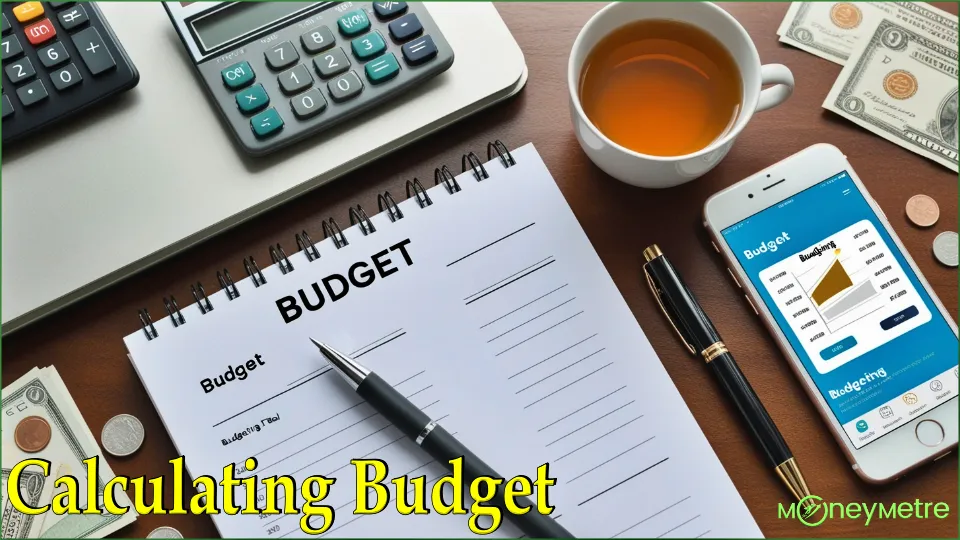Buying a house is a major milestone for many people. It’s a goal that requires careful planning, disciplined saving, and an understanding of the financial responsibilities involved.
In this article, we’ll discuss how to make a budget for buying a house, outlining each step to ensure you’re prepared for this important purchase. By following these guidelines, you’ll be better positioned to achieve your homeownership dreams.
9 Guidelines for Making a Budget for Buying a House
1. Determine Your Financial Readiness
Before making any commitments, assess your current financial situation. Your financial readiness includes having a stable income, manageable existing debts, and enough savings. Consider the following:
- Income Stability: Lenders prefer borrowers with a stable job or a regular source of income.
- Credit Score: A good credit score is essential to secure a loan with favorable terms. Check your credit score with reputed agencies like CIBIL and aim for a score above 750.
- Savings: You need enough savings to cover the down payment and other initial costs. A good rule of thumb is to have at least 20% of the property’s value saved as a down payment.
By understanding these factors, you’ll know where you stand financially and whether adjustments are needed.
Read Also: How to Improve CIBIL Score Without Loan: 7 Effective Steps
2. Calculate Your Budget for Buying a House
A good way to make a budget for buying a house is to calculate the total amount you’ll need, factoring in all costs.

Here’s how to break it down:
a) Down Payment
In India, most banks finance up to 80% of the property value, so you’ll need to arrange for the remaining 20%. For instance, if the house costs ₹50 lakhs, you should be ready with at least ₹10 lakhs as the down payment.
b) Home Loan Amount
Once you know your down payment, calculate how much you can borrow. Home loan eligibility depends on factors like your income, age, and credit history. Use an online loan eligibility calculator available on banks’ websites to estimate your eligible loan amount.
c) Additional Costs
Remember to budget for extra costs, such as:
- Registration and Stamp Duty: In most states, registration and stamp duty charges range between 5% and 7% of the property value. Check India’s Stamp Duty Charges by State for more details.
- Home Insurance: Home insurance costs are relatively low but protect your investment. Expect to pay around ₹5,000 to ₹15,000 annually.
- Maintenance and Renovation: For resale properties, you might need to budget for renovation costs.
Once you calculate the approximate amount for each category, add them to get your total budget.
3. Save Strategically for Your Home Purchase
Now that you know the budget, it’s time to start saving. Here’s how:
a) Set a Monthly Savings Goal
Divide the down payment amount by the months remaining until your target purchase date. For instance, if your goal is two years from now, divide your required down payment by 24 months to determine your monthly savings goal.
b) Create a Separate Savings Account
A separate savings account will help you keep track of your progress. You can consider fixed deposits or recurring deposits to grow your savings while keeping them secure.
c) Cut Unnecessary Expenses
Identify areas where you can reduce spending, such as eating out or luxury shopping. Redirect these savings to your home-buying fund.
d) Increase Your Income Sources
Look for additional ways to earn money, like freelancing, teaching, or a part-time job. Every extra rupee can accelerate your savings.
4. Plan for Your Home Loan EMIs
Your monthly EMI should not exceed 30–40% of your income. Calculate the EMI using an online EMI Calculator to get an idea of the repayment burden. This step helps avoid financial strain after purchase.
5. Factor in the Long-Term Costs of Home Ownership
When buying a house, consider the long-term financial impact. These ongoing costs include:
- Monthly EMIs: Ensure they fit into your budget.
- Utility Bills and Maintenance: Property taxes, electricity, water, and maintenance fees will add to your monthly expenses.
- Home Improvement and Repairs: Over time, you may need to repaint or repair parts of your home.
6. Choose the Right Loan Tenure
A longer loan tenure means lower EMIs but higher interest costs. Evaluate your repayment ability and future financial goals to select the ideal tenure. A shorter tenure helps save on interest costs if you can afford higher EMIs.
7. Look for Government Schemes and Subsidies
The Indian government offers various schemes that can benefit homebuyers. For example, the Pradhan Mantri Awas Yojana (PMAY) provides subsidies for first-time homebuyers from certain income groups. Check if you qualify, as it can reduce your interest burden significantly.
8. Stay Informed About Real Estate Trends
The property market fluctuates, so stay informed about real estate trends in your preferred area. Property prices in metropolitan cities may be higher, while suburban areas offer relatively affordable options. Following property trends helps you make a wise investment.
9. Consult a Financial Advisor

If you’re unsure about how to make a budget for buying a house, consulting a financial advisor can be helpful. They’ll guide you in managing your finances and advise on suitable home loan options, maximizing your ability to afford your dream home without overextending yourself.
Conclusion
Making a budget for buying a house is essential to avoid financial stress and ensure a smooth buying experience.
By determining your financial readiness, calculating all costs, saving strategically, and planning for future expenses, you’ll be well-prepared for homeownership. Stick to these steps, and you’ll have a clearer path toward purchasing your dream home.
With proper planning and disciplined saving, anyone can create a realistic and achievable budget. Remember, patience and consistency in your approach are key. Happy home-buying!
FAQs on How to Make a Budget for Buying a House
-
What is the minimum down payment for buying a house in India?
Most banks require a minimum down payment of 20% of the property value.
-
How do I improve my credit score for a home loan?
Pay off existing debts, avoid delayed payments, and review your credit report regularly for errors.
-
Can I get tax benefits on a home loan?
Yes, under Sections 80C and 24 of the Income Tax Act, you can claim tax deductions on home loan interest and principal repayment.
-
What are stamp duty and registration charges?
Stamp duty and registration charges are legal fees paid to register the property under your name, varying by state and property value.
-
Is it better to buy a new property or a resale one?
It depends on your preference and budget. New properties come with a premium, while resale properties may need renovations.
-
What are the documents needed for a home loan?
Commonly required documents include identity proof, income proof, property documents, and a good credit history.
-
How do I check my eligibility for Pradhan Mantri Awas Yojana?
Visit the PMAY official website to check eligibility criteria and apply online if you qualify.
Read Other Latest Posts Below







